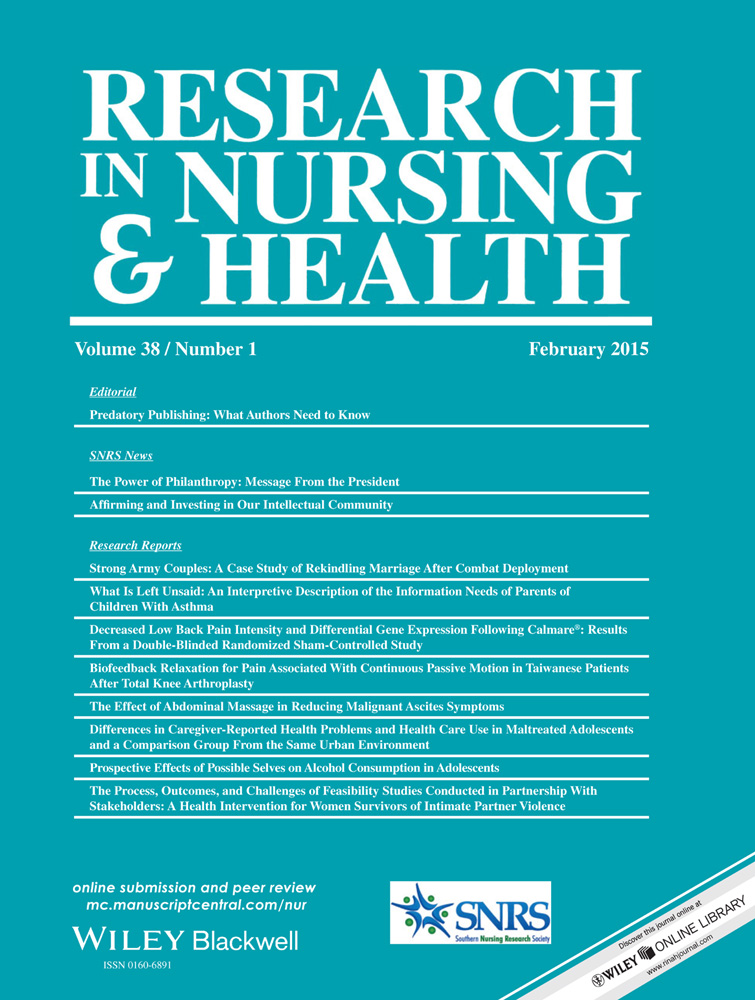The Effect of Abdominal Massage in Reducing Malignant Ascites Symptoms
Abstract
As many as 50% of end-stage cancer patients will develop ascites and associated symptoms, including pain, tiredness, nausea, depression, anxiety, drowsiness, loss of appetite, dyspnea, perceived abdominal bloating, and immobility. Abdominal massage may stimulate lymph return to the venous system and reduce ascites-related symptoms. The purpose of this study was to test the effect of abdominal massage in reducing these symptoms and reducing ascites itself as reflected in body weight. For a randomized controlled design using repeated measures, a sample of 80 patients with malignant ascites was recruited from gastroenterology and oncology units of a medical center in northern Taiwan and randomly assigned to the intervention or the control group. A 15-minute gentle abdominal massage, using straight rubbing, point rubbing, and kneading, was administered twice daily for 3 days. The control group received a twice-daily 15-minute social interaction contact with the same nurse. Symptoms and body weight were measured in the morning for 4 consecutive days from pre- to post-test. In generalized estimation equation modeling, a significant group-by-time interaction on depression, anxiety, poor wellbeing, and perceived abdominal bloating, indicated that abdominal massage improved these four symptoms, with the greatest effect on perceived bloating. The intervention had no effect on pain, tiredness, nausea, drowsiness, poor appetite, shortness of breath, mobility limitation, or body weight. Abdominal massage appears useful for managing selected symptoms of malignant ascites. © 2014 Wiley Periodicals, Inc.




